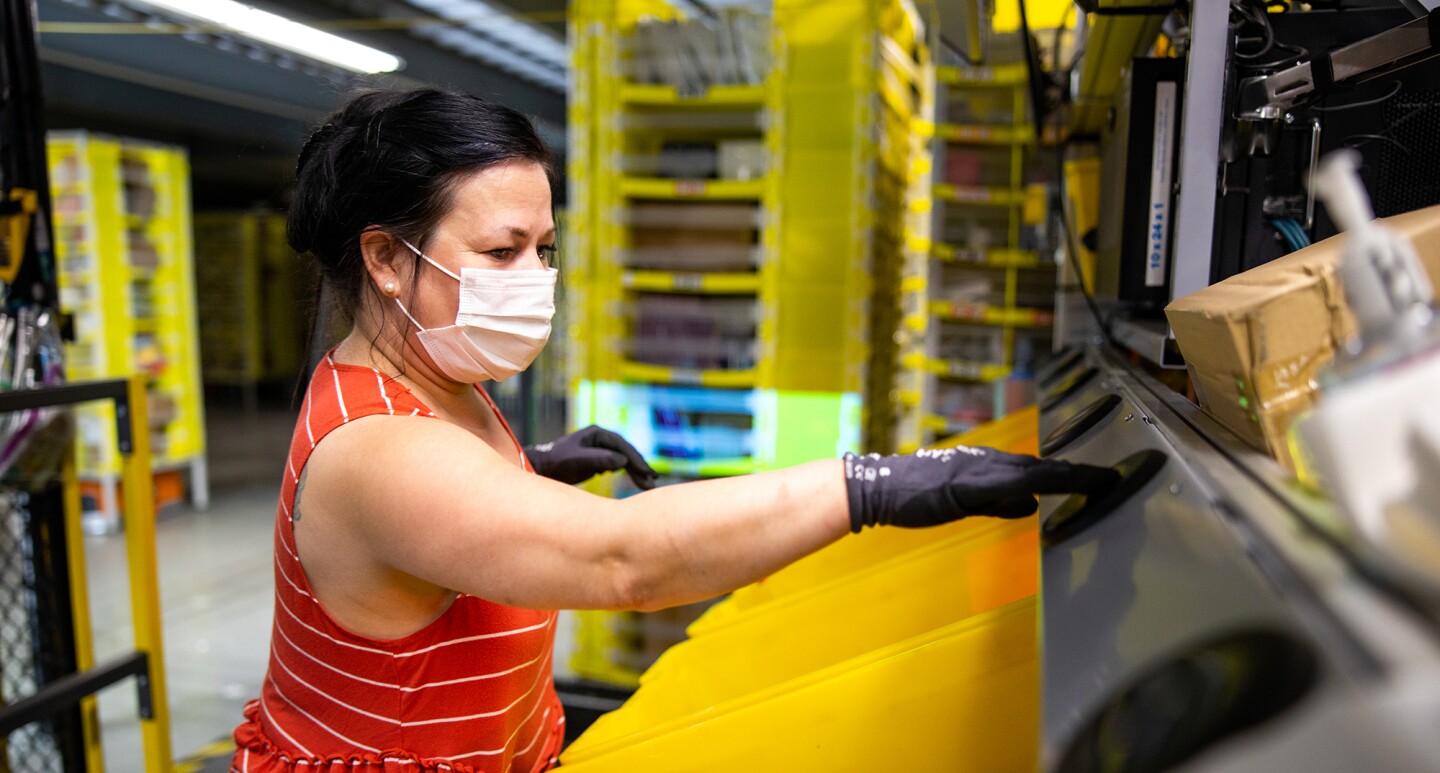Employee Benefits
Along with an average starting pay of $18 per hour—more than double the federal minimum wage—Amazon offers a range of great benefits that support employees and eligible family members, including domestic partners and their children. These comprehensive benefits begin on day one and include health care coverage, parental leave, ways to save for the future, and other resources to improve health and well-being.


Financial success
We help our employees build successful futures for themselves through industry-leading wages and other compensation.
Our starting hourly wages are at least $15 per hour for all full time, part time, and seasonal employees and contractors. In addition to fair pay, employees have opportunities to own Amazon stock, participate in 401(k) plans with 50% company match, and enroll in paid life and accident insurance. Financial counseling and estate planning services are also available, plus paid short-term and long-term disability if needed.
Our starting hourly wages are at least $15 per hour for all full time, part time, and seasonal employees and contractors. In addition to fair pay, employees have opportunities to own Amazon stock, participate in 401(k) plans with 50% company match, and enroll in paid life and accident insurance. Financial counseling and estate planning services are also available, plus paid short-term and long-term disability if needed.

Employee health
Taking care of our employees’ health and wellness is a priority. That’s why we offer medical, prescription drug, dental, and vision coverage to all our regular full-time employees, regardless of their level, tenure, or position.
We also offer a medical advice line and counseling services that are completely confidential and available 24/7. Amazon Care, a virtual clinic with an option for nurses to visit employees in the home, is a benefit for Amazon employees and their families in Washington state.
When employees want to take time away from work, they are afforded ample paid time and paid holidays, in addition to other leave and medical accommodation options that are available for mental and physical health concerns.
We also offer a medical advice line and counseling services that are completely confidential and available 24/7. Amazon Care, a virtual clinic with an option for nurses to visit employees in the home, is a benefit for Amazon employees and their families in Washington state.
When employees want to take time away from work, they are afforded ample paid time and paid holidays, in addition to other leave and medical accommodation options that are available for mental and physical health concerns.

Caring for families
Our employees are recognized for their work through compensation and valuable benefits for themselves and their families.
With many options, employees can choose the benefits that are most valuable for their personal situation. This includes child and eldercare providers. Amazon employees have free access to a network of more than two million caregivers, including nannies, babysitters and special-needs caretakers. Employees receive discounts on certain day care centers, and Amazon provides a variety of free resources for parents of children with autism, ADHD and developmental disabilities. We also offer adoption assistance for qualified domestic and international adoption expenses including attorney fees, court costs, and travel.
With many options, employees can choose the benefits that are most valuable for their personal situation. This includes child and eldercare providers. Amazon employees have free access to a network of more than two million caregivers, including nannies, babysitters and special-needs caretakers. Employees receive discounts on certain day care centers, and Amazon provides a variety of free resources for parents of children with autism, ADHD and developmental disabilities. We also offer adoption assistance for qualified domestic and international adoption expenses including attorney fees, court costs, and travel.

Parental leave
Amazon supports employees throughout all stages of their lives.
We celebrate the growth of all our employees’ families through a variety of benefits. We offer up to 20 weeks of leave to birth mothers and six weeks for parents who adopt. Our Leave Share program allows employees to give six weeks of paid parental leave to a spouse or partner who isn’t eligible for parental leave from their employer. Plus, our Ramp Back program offers birth parents eight consecutive weeks of flexibility and partial work hours as they readjust to work schedules as new parents.
We celebrate the growth of all our employees’ families through a variety of benefits. We offer up to 20 weeks of leave to birth mothers and six weeks for parents who adopt. Our Leave Share program allows employees to give six weeks of paid parental leave to a spouse or partner who isn’t eligible for parental leave from their employer. Plus, our Ramp Back program offers birth parents eight consecutive weeks of flexibility and partial work hours as they readjust to work schedules as new parents.








